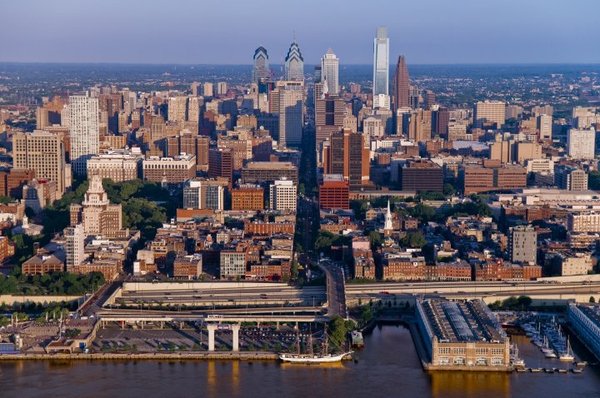The entrenched culture of corruption in Philadelphia politics, evident everywhere in newspapers and online, will not stop unless the city is jolted by an external event that forces cultural reform, according to one public safety expert who examined the issue in an op-ed for The Hill.
Even those who keep informed about official mischief in Philadelphia have likely had a difficult time keeping up with the onslaught of convictions and new revelations over the past year alone.
• Former U.S. Rep. Chaka Fattah and his son were both convicted on racketeering charges.
• Former Pennsylvania Attorney General Kathleen Kane was convicted on perjury charges connected to a sabotage effort involving a Philadelphia newspaper.
• Philadelphia District Attorney Seth Williams has come under the microscope for his egregiously belated disclosure unreported gifts stretching back six years.
• Former Philadelphia Mayor Michael Nutter got into vitriolic battle with City Controller Alan Butkovitz over a report that his administration allegedly created a "slush fund" using money from the Philadelphia Marathon.
• The offices of labor leader John Dougherty of IBEW Local 98 were raided by the FBI this month in an investigation of alleged union fund embezzlement, contractor intimidation and possible extortion, according to The Philadelphia Inquirer. City Councilman Bobby Henon, who also serves on the IBEW staff, is under investigation as well.
These are just the biggest scandals, leaving out charges brought against former Visit Philly CFO Joyce Levitt (for the alleged theft of $200,000), the School District of Philadelphia's $2.3 million payout in a contract discrimination lawsuit, and an unfolding pattern of potential car towing schemes.
Writing for the Hill, A. Benjamin Mannes says "all corruption is local in Philadelphia" and the city's political infrastructure is thoroughly steeped in venality.
In looking at recent history, such an entrenched unethical culture can only be reformed when a massive external event forces change on the city outside its electorate. In New Orleans, known for its culture of corruption, Hurricane Katrina brought millions in federal aid dollars into locally managed agencies, forcing oversight from numerous federal Inspectors General and watchdog agencies. This served to highlight a case in where [sic] former Mayor Ray Nagin was convicted of corruption, but forced the powerful political machine there to accept the oversight of independent Inspectors General on the local level with Ed Quatrevaux and Stephen Street on the state level.
Mannes is subject matter expert in public safety, homeland security and the integrity of high stakes testing. His experience spans from law enforcement investigations to emergency management, with a focus on the ethics of public institutions and security-related business functions. He argues that Philadelphia's existing oversight bodies — the Ethics Board, Office of Inspector General and City Controller — have not successfully affected change in the wake of numerous violations over the years.
In order for meaningful local reform to occur in Philadelphia, it should follow the best practices in the ethics community and give the Office of Inspector General the independent authority to investigate all branches of city government, and give it the budget and staff it needs to create omnipresence and limit the opportunity for corruption. Ethics Board fines should also come with the legislated authority that enables them to revoke eligibility to run for office.
The city should also seek help from the federal government, including the FBI and U.S. Attorneys, to evaluate the mechanisms of corruption and recommend better processes to escalate violations into the criminal justice system and strengthen accountability with greater consequences.
"The idea is to make those in local government understand that there are people watching and looking out for the taxpayers," Mannes writes.
With a new mayoral administration in place — and despite speculation that the Dougherty case could embroil Jim Kenney — the opportunity now exists to recognize Philadelphia's extreme level of public impropriety and build momentum toward changing its acceptance as the way of the world.

